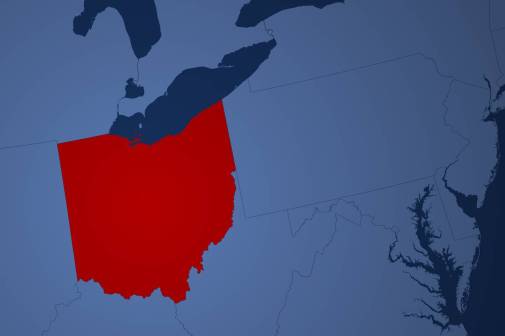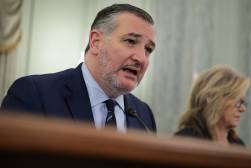

Robyn Mace
Chief Data Officer
Metro Nashville, Tennessee
What’s your big project in open data/open government right now?
My biggest project is ongoing to cultivate and promote Metros data culture! In September, Metro offered its first Data Academy in conjunction with Socrata. Fourteen departments and agencies participated! Its exciting so many thoughtful, diligent people are working in Metro Nashville to deliver great services.
Developing and providing data educational opportunities for Metro employees will be a critical part of our efforts to encourage and support employees to use data effectively to achieve operational and organizational goals. In other words, investing in our employees will yield benefits to our residents and visitors.
Metros data coordinators meet monthly, and were always working to provide topical, applied programming to these departmental data champions and advocates to support their data work.
While we have required comprehensive metadata for all open data datasets since our programs inception in 2015, this summer, we completed a review of all of Metros metadata to insure that we have the most helpful and explanatory metadata documents to assist potential data users in understanding Metros data assets. In addition to improving searchability, we standardized the format for older datasets to insure that we are offering information consistently across datasets.
How is this work changing how government does business?
Actually, fostering collaboration between departments is critical to support more informed decisions, better operational information, and enhanced services delivery. Im lucky to get to work to promote collaboration in both human and technical terms.
There are some very exciting opportunities to collaborate with and across several departments, including the Mayors Office and innovation-oriented Public Investment Plan-funded programs. Opportunities to use service and operational data to effectively explain the work they do and the impact it has on our communities are crucial to our success. Metro must be able to communicate visually with numerous and multiple audiences and stakeholders that are interested in those services.
This fall, well conduct Metros first annual Data Asset Inventory. This is an exciting, and recurring opportunity for our Departments and agencies to better understand and capitalize on the data assets that they create, use, and manage. It is also a tremendous chance to raise awareness about data across the enterprise for collaboration and problem-solving.
Metro Nashville is a vibrant, creative city with a tremendously diverse rapidly-growing population that needs the best, most sustainable, healthy and safe infrastructure and building scape imaginable by the broadest coalition of informed, engaged employees and residents.
What’s one change you would like to see in the open government space?
Im particularly keen to dispel the notion that data is the responsibility of specific, dedicated data employees. Data works best when its available to a wide range of audiences and decision-makers. In the 21st century, everyone needs data skills. So, increasing Metro Nashvilles data literacy and fluency is a critical factor to enable us to engage with the challenges of rapid growth in a productive, systematic manner.
Im also eager to engage civic and commercial tech concerns to infuse that sectors knowledge and enthusiasm into Metro Nashville data work. Collaboration with the private and civic sector will enhance our understanding of the transformative power of data visualization and analysis.
As a Tennessean and an applied researcher, Ive long dreamed about opportunities and advantages of working with the big cities across Tennessee to share, compare and learn from data about urban dynamics of crime, planning, parks, water and waste management, well, everything really. This community of practice could help to inform policy, develop and test new programs to address emerging or extant challenges, and generally raise the quality of services and outcomes.

Aidan and Liam McCarty
Co-Founders
ePluribus
What’s your big project in open data/open government right now?
Were building ePluribus, an online platform that helps people contact their representatives and provides representatives with high-fidelity aggregate data about whos contacting them and what theyre saying. ePluribus is the worlds first civic network. A civic network is like a social network but with a crucial difference it establishes unique identity. Just as a bank ensures that each account is associated with a unique person, ePluribus ensures that each message to a representative comes from a single individual. In doing so, it helps representatives process and understand the huge volume of messages they receive and helps people like you be heard. Because it ensures unique identity, ePluribus allows representatives to filter out spam and focus only on messages from real people with real concerns. We also provide media and the public with aggregate data so that they can hold representatives accountable to what their constituents believe.
How is this work changing how government does business?
ePluribus provides government with the verified data it needs to serve its people. Government technology is outdated, and representatives receive way more messages than they can handle with that technology. Civic tech to date has helped people contact representatives without helping representatives process messages. Sadly, and ironically, thats made the problem worse: Representatives receive over 10 times as many messages as they did 10 years ago, but they have the same outdated tools. ePluribus addresses this problem by giving them high-fidelity aggregate data that allows them to understand and represent their constituencies. Government agencies and departments can leverage the same technology to more effectively handle communications and make government more transparent, accountableand efficient.
What’s one change you would like to see in the government and/or open data space?
Wed like to see more two-way communication between representatives and their constituents. Most civic tech has focused only on helping people send messages, and that one-way approach seems, at first glance, symptomatic of how diluted representation has become. Each Member of Congress now represents well over 700,000 people, about 20 times as many as when the Constitution was ratified. Understandably, many people have argued that this is the main impediment to meaningful civic communication, but we feel differently. Modern communication technology is far better than anything available in Americas early days, and representatives should be able to effectively represent more people than they used to. We should stop focusing only on helping people send messages and instead work toward improved two-way communication.

Beth Mitchell
Director of Performance & Innovation, Office of Innovation, Data & Engagement
Salt Lake County, Utah
What’s your big project in open data/open government right now?
Salt Lake Countys big project is to establish a countywide performance management framework. At the mayor and deputy mayor level, this means requiring that outcomes, indicators, and supporting datasets are a key component of all budget and How are we doing? conversations. On a manager and employee level, it means the new Office of Innovation, Data & Engagement working alongside them to identify and report on the high-value datasets that show progress toward the countys strategic goals. Mayor [Ben] McAdams has been a huge proponent of data-informed management from the start, and worked hard to form the team, adopt best practices, and implement the best tools and training to scale the effort. At Salt Lake County, we work to embody W. Edwards Demings famous quote, In God we trust; all others bring data.
How is this work changing how government does business?
Data is the currency of progress. As stewards of taxpayer dollars, the onus is on government to clearly map the work being done every day to constituents vision for their community. Clear and consistent data lets residents know that our programs and policies are moving the needle on issues they care about, such as homelessness, criminal justice, regional development, education, and environmental preservation. Let me be clear: my work at Salt Lake County has confirmed that employees and managers have been using data for a long time to make decisions. Our effort now is to applaud and advance that work, to include data in program and policy decisions formally and consistently, and to increase our transparency and accountability to the public we serve.
What’s one change you would like to see in the government and/or open data space?
I would like to see government do more to reject the status quo. The public sector gets a bad rap for being slow and difficult to work with, but our bureaucratic tendencies seldom stem from unmotivated or inflexible people. In fact, many of the most brilliant and dedicated people I know work in government. Usually, it is laws and regulations we dont control that slow things down. If certain policies are no longer advancing our mission of serving citizens, I believe we must revisit and revise them. Lets push government into the 21stcentury and beyond. As Mayor McAdams said so aptly in his inaugural State of the County, Wherever county functions do not reflect the world we live in, we will change. I am ready, and I know Im not alone. Lets do this!

Tim Moreland
Director of Performance Management and Open Data
Chattanooga, Tennessee
What’s your big project in open data/open government right now?
The City of Chattanooga has been running its open data program for a few years now as a result of the leadership of Mayor Andy Berke. Now we are taking time to look back over our open data policy and program to see what needs to be updated. Since the world of open data/open government is constantly evolving, having regular touchpoints to reflect and update your program is very important.
For example, our initial program was focused on providing high quality and relevant open data. We have been seeing a shift in the last year or so to a focus on how to empower and engage Chattanoogans and city departments with these open data assets. The challenge is how to continue a robust open data program while also expanding our efforts to engage and empower. Things like our new CityInsider and Open Data ChattBot are examples of some of our efforts to shift in this direction.
How is this work changing how government does business?
Here at the city, we think that open data just for the sake of open data is a waste of time. As a result, the city is one of the biggest users of the open data portal. We use the portal to visualize our data, create dashboards and track progress on our performance measures.
We also believe that it is on the city to make the open data accessible and useful for everyday Chattanoogans. Towards this end, the city is leveraging the data on the open data portal to develop citizen-focused apps that seek to solve problems using open data. Our hope is that providing these open data apps will empower citizens and make them better partners with city government and its goals.
What’s one change you would like to see in the government and/or open data space?
Im a big believer in the power of open. Whether it is open data, open technology or open creative works, having it open creates a space for that thing to grow and develop into something more. Along those lines, one change I would like to see is more work done in the space of open data standards. Ideally, I would like to see more of them created and adopted by cities, their software vendors and civic technologists. It is a bit ironic but having an open data standard allows for more creativity and collaboration from developers using the data to build useful applications.
Getting wide adoption of, in many cases non-existent, open data standards may be a pipe dream. It is entirely possible that advancements in artificial intelligence will remove the need for open data standards as these systems are able to understand, integrate and analyze any dataset. You are already seeing this start to crop up in places like Google Sheets Explore function that visualizes and highlights interesting data patterns in everyday language for almost any dataset.

Tom Mullen
Chief Data Officer
Riverside County, California
What’s your big project in open data/open government right now?
- Financial Transparency this year we have focused on publishing more than 28 million financial transactions and allowing the public to access and download these individual transactions. Additionally, we have published the countys annual budgets to our open data portal dating from 2011 through July 2017. These records include individual vendor payments, revenues and expenditures for each county department, funding type, category and account group.
- Voter Transparency we are preparing 12 years of voter records for republication into our open data portal. Currently these records are a mix of PDF documents and Excel spreadsheets that will be converted in an open and interactive format.
- Spatial data we have launched a new mobile-enabled mapping tool called Map My County. This data-rich platform provides more than 50 layers of land use and property information.
- Community Health Dashboard we have a robust repository of community and public health information including dashboards, metrics and indicators built on accessible open data. These dashboards include comparisons of our communities with others from around the nation and include topics such as adults without health insurances, adults with arthritis, kidney disease, and who have experienced a stroke. The data is interactive and downloadable.
- RIVCOconnect a program to bring high-speed gigabit broadband service to all residents and businesses within Riverside County and its 28 member cities and participating tribal communities.
How is this work changing how government does business?
The services and programs listed above have been put in place to help improve our community, their understanding of our operations, provide insights into who we are and how we live, how we use our lands and natural resources, and how we have collectively voted for our representatives. The overall well-being of our community is driven by the actions and choices of our residents, visitors and businesses and these data services allow them greater insight and understanding into what is occurring in our community.
Based on the analysis of broadband penetration within our county, we identified that some of our community members are living on the other side of the digital divide. RIVCOconnect strives to help our residents cross the digital divide by donating refurbished computers, providing basic computer training, and referral to low cost internet options that are available through internet services providers throughout the county.In the programs first year we have generated $1 million in value for the county and our community through the refurbishment, repurposing, donation and sale of surplus technology equipment. We continue to grow the program through partnerships with non-profit organizations and other local governments to reach those in need throughout our large county.
What’s one change you would like to see in the government and/or open data space?
As a county we have a sea of data that is locked away in more than 125 different systems of record. While we have successfully published some of the data openly for example, land use and voter data, financial transactions, and budget information there is much more data that needs to be accessed, analyzed and appropriately aggregated so that it can be shared internally and with the public.
Our systems of record support the delivery of services such as animal services, public health, criminal justice, social services and tax collections, just to name a few. As it relates to analysis of this disparate data, I see the value in reducing the complexity of data security rules and regulations across the spectrum of data origins and sources. For example, the specific requirements for management of personally identifiable information (PII), criminal justice information (CJIS), protected health information (PHI) and health insurance portability and accountability act (HIPAA) data are all unique and require different processes, authorizations and expertise. If our goal is to be more data-driven and utilize fact-based decision making, we need regulatory structures that enable data analysis across these various organizations in a coherent manner.






